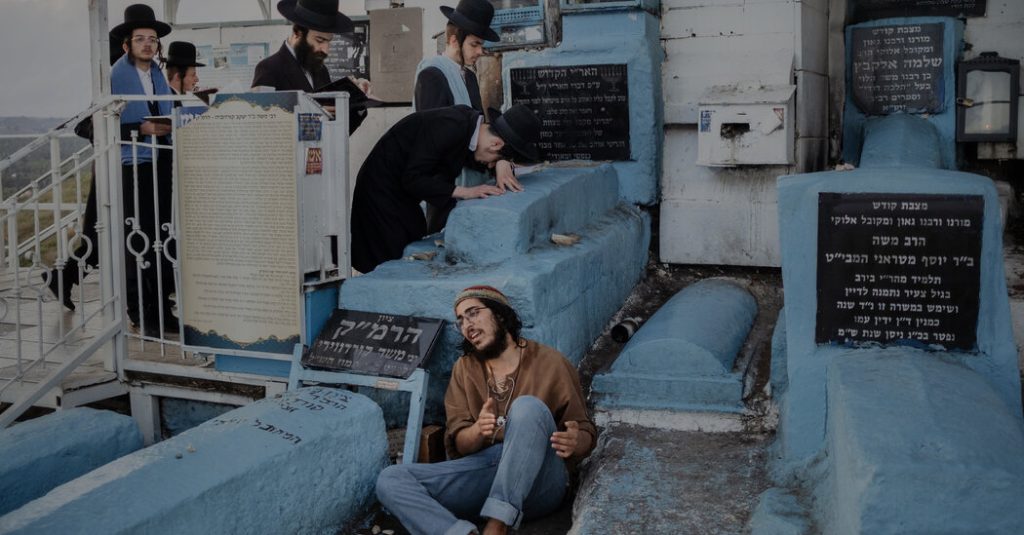Eyal Ben-Ari, a resident of Safed, Israel, grapples with the decision to join a newly formed civilian militia that has armed him with a heavy assault rifle. Despite carrying the weapon for self-defense, he struggles with the unnatural and inhumane feeling of having a gun. The city of Safed, located near the Lebanon border where Hezbollah’s rockets pose a threat, has seen a surge in citizens arming themselves following an attack by Hamas gunmen that left 1,200 people dead in rural villages. This has led to the formation of rapid response teams known as Kitat Konenut, where volunteers are trained and armed to protect their communities.
In Israel, guns have always been a common sight due to mandatory military service and the need for security in a volatile region. The Kitat Konenut groups, comprised of civilians with military training, have been integral to Israel’s security for decades, with recent efforts to arm more civilians following a rise in violence. However, criticisms have been raised about the potential for increased tensions and discrimination, particularly among Israeli settlers in the West Bank who are arming rapidly. Arab communities have not been granted the same leeway to form armed volunteer groups, leading to concerns about unequal treatment and the use of weapons for intimidation.
In Safed, a city known for its religious and artistic communities, the threat of violence has shifted the focus towards preparation and self-defense. Religious and civilian leaders now carry weapons, and bomb shelters are being added to schools. The Kitat Konenut in Safed is composed mainly of Orthodox Jews, who view their mission as one of protecting their people from external threats. The recent conflict with Hamas in Gaza has deepened the belief among some members that they are engaged in a holy war, leading to a sense of urgency and vigilance in the community.
Despite the commitment to self-defense, there is a tension between the need for security and the desire for peace and understanding. Residents of Safed grapple with the dual feelings of fear and longing for safety, as well as the challenge of reconciling faith with the reality of armed conflict. The presence of guns in everyday life has brought about changes in perceptions and relationships, with divisions being sharpened between communities. The ongoing conflict has hardened hearts and created a sense of uncertainty about the future, leading many to question the path to lasting peace and security.
In the midst of these challenges, individuals like Eyal Ben-Ari and his family navigate the complexities of living in a region fraught with tension and violence. Their personal struggles reflect the larger societal debates around security, identity, and coexistence in Safed and throughout Israel. As they grapple with fear, uncertainty, and responsibility, they are forced to confront difficult questions about the role of weapons in their lives and the broader conflict. In a city where love and hatred, peace and violence, coexist in a delicate balance, the residents of Safed seek to find a path forward that reflects their values and aspirations for a better future.








